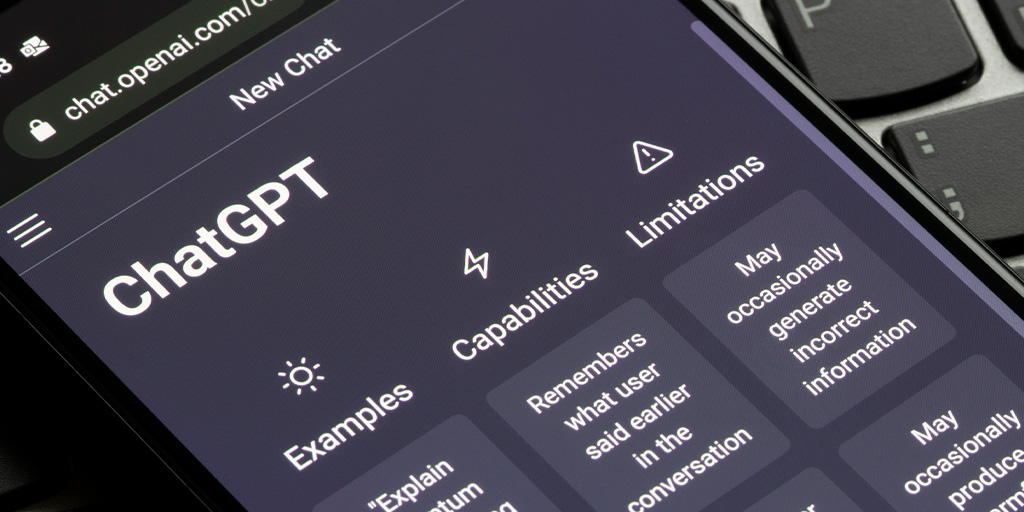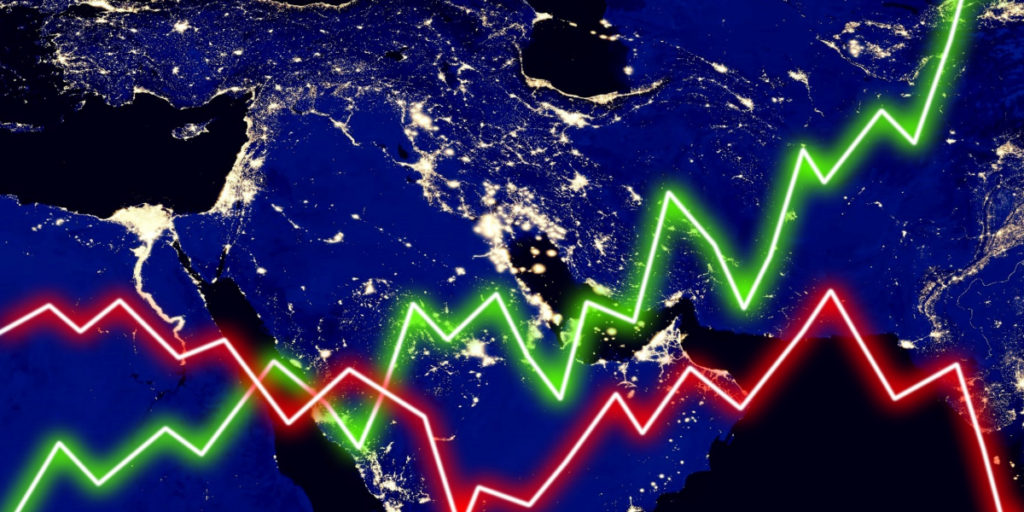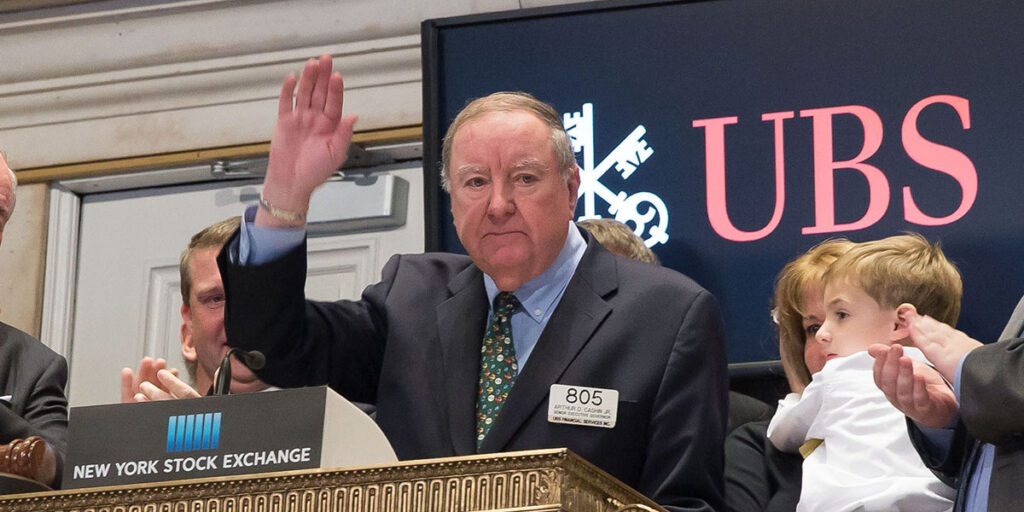For those of you who would prefer to listen:
Artificial Intelligence (AI) is all the rage these days. Just this week, Bill Gates grabbed some headlines stating that the advent of AI in language-based search will change our lives. Gates said it will be as significant as the internet itself. That is quite a statement from someone who has spent the majority of his life centered within the Digital Revolution.
Bill Gates hasn’t run the company he co-founded for two-and-a-half decades. Microsoft was sort of left-behind, tethered to the PC, as the move to mobility took off. In 2014, a new CEO, from within, shined a light on an innovative vision and passion to the company, which basically reinvented itself. Now, Microsoft is aggressively going after the AI opportunity, both in the cloud and in search. It’s being driven by a relatively small investment in a San Francisco start-up that is now leading the charge in AI. The product that has created the buzz is called ChatGPT, created by the start-up company OpenAI.
ChatGPT is an AI chatbot. A chatbot is a tech-term for an automated solution that answers basic questions online, without human interaction. Chances are you’ve used them, or at least seen them.
The ChatGPT bot has proven to be amongst the smartest there is. OpenAI developed it in-house. OpenAI was co-founded in 2015 by Elon Musk and Sam Altman and is backed by some prominent investors. Microsoft is among them. As I understand it, Chat GPT is one of several examples of what’s called Generative AI. It’s based on the Generative Pretrained Transformer (GPT) language model. The bot filters through written text or images in lightning fast fashion, and uses deep learning techniques with the goal of creating human-like responses. The major benefit is it comes in a very conversational way. You won’t necessarily even know it’s not a human response. It’s been an instant hit.
Here’s an example. I tried to log on to ChatGPT earlier in the week. I got what’s become a familiar notice that it was currently at capacity. It was a very typical situation with an atypical response. The message was written as if it were by Shakespeare. It read like this:
Ah, dear user of ChatGPT, thou art not alone in thy desire to engage with our esteemed AI chatbot. Many have flocked to our website in this hour, and we do our utmost to accommodate each and every one. Yet, alas, our resources are not without limit and we must ask for thy patience and forbearance. In time, we shall be able to provide thee with access to ChatGPT. Until then, we beg thee to return at a future juncture, when we may better serve thy needs. Until then, we bid thee adieu and good fortune.
ChatGPT has recorded 100 Million monthly active users only 2 months into its launch. That made it the fastest-growing consumer application in history. It hooked 1 Million users in just its first 5 days. For perspective, it took TikTok 9 months to reach 100 Million users. It took Instagram two and a half years.
ChatGPT is like the first shot across the bow in this Big Tech AI battle and Microsoft is now leading the race. AI has the potential to gather information from across the web and integrate it into a plain-spoken explanation. It could replace traditional online search. Importantly, this is Google territory, and the threat is real and known. Google is not used to competitive threats. In response to ChatGPT’s popularity, Google reportedly declared an internal “code red” to accelerate the development of its AI products. Google went back to the future by bringing back co-founders Sergey Brin and Larry Page to spearhead the campaign. Google has called itself an “AI-first company” for years. This is a serious challenge being felt in Mountain View.
Google definitely has the capacity to respond and still win. The company has extensive computing infrastructure built up and a massive distribution advantage for search. Google is the default search option on both iOS (Apple) and Android. Microsoft would like to penetrate this stronghold by incorporating OpenAI within its Bing search engine. But that’s a big hill to climb. Google has 90% market share in search. Bing has just 9%.
Google demoed several artificial intelligence-linked updates to its products and services this week. One was its answer to ChatGPT. It’s called Bard. It’s also a chatbot, powered by the company’s large language model LaMDA, or Language Model for Dialogue Applications. The product was introduced this week. But it underwhelmed Wall Street. The problem was, Bard reportedly gave an incorrect answer to a question in front of the audience. That sure didn’t help cut Microsoft’s lead.
Google also has an AI program called Google Lens, which lets people search for images from the camera on their phone. This search feature allows people to search using both text and images at the same time. It launched last Spring as a way to modernize Google search to take better advantage of mobile device capabilities. Google states, “this AI product can understand information across a variety of formats, including text, photos, and videos, and then draws insights and connections between topics, concepts, and ideas.” The technique is believed to be most helpful with shopping searches. For instance, you could show pictures of clothes you liked, in order to find different colors or styles. You could also take a photo of a piece of furniture, like a couch, to find items that matched, like a coffee table or chair.
You might be wondering why ChatGPT is further along than Google’s Artificial Intelligence platform. Perhaps the simple answer is small start-up mentality versus the more bureaucratic corporate environment. OpenAI concentrated on generating high-quality models and letting people discover their own uses for them, while Google seemingly worked on incorporating AI into their existing business plans. Microsoft’s increased investment in OpenAI is being called the deal of the century. Microsoft is also expected to roll out cloud services with Azure that integrate ChatGPT into its platform as it seeks to stave off competition from Google and Amazon in the cloud.
Artificial general intelligence, or AGI, is often considered the holy grail of the AI community. It most commonly refers to the ability of an intelligent agent to understand or learn any intellectual task that a human being can. It’s the ultimate goal for all players involved.
With power comes responsibility. It should be a requirement. But not everyone sees it that way. AI has also sparked concerns over potential abuses. In classrooms, students have used ChatGPT to generate entire papers. Hackers will use it for malicious code. Artificial Intelligence can spread conspiracy theories and disinformation even more quickly than the internet already does. It’s the digital version of Winston Churchill’s famous quote on lies: “A lie can get halfway around the world before the truth has a chance to get its pants on.”
Then there’s this: Competition won’t stay stateside. Not to be outdone, Chinese Tech Titan Baidu announced this week it would unveil its AI chatbot, Ernie, in March. The race is getting more crowded. And the stakes are super high.
Speaking of “Super”… There’s a game this weekend. Did you know that a 30-second Super Bowl commercial costs $7 Million now? That’s a new record. They went for $4.5 Million in 2016. That was a record then too. Speaking of advertising, there will be some notable industry players missing. The biggest commercials last year centered around cryptocurrencies. Many in the Advertising Industry called it the “Crypto Bowl.” That was a play (or more likely a dig) on the “Dot-Com Bowl” in 2000. You remember when those speculative internet companies paid big bucks for the attention and awareness only the Super Bowl could provide. It didn’t end well then either. Pets.com made its first national television ad ever by spending $1 Million on the Super Bowl. It IPO’d just weeks later. The company filed bankruptcy before the year’s end.
This might just be the Super Bowl of Gambling. Wagering is expected to hit a total of $16 Billion this weekend. That would mark the largest gambling event in American history. It’s big money. It’s even being rumored that fans will be able to bet on one of the Super Bowl commercials featuring Miller Lite and Coors Light. That actually might be more interesting than the game itself. And just think, 5 years ago the Commissioner of the NFL said he was strongly opposed to legalized gambling… For better or worse, everything has a price.
For those investors who follow the Super Bowl indicator, you’re rooting for the Eagles this weekend. The Stock Market has finished the year in the green 82% of the time when the NFC team wins the Super Bowl. That’s a pretty remarkable track record. It backfired last year. Of course, it did. The Rams always find a way to foul things up…
Have a nice weekend. Enjoy Super Sunday. We’ll be back, dark and early on Monday.
Mike







